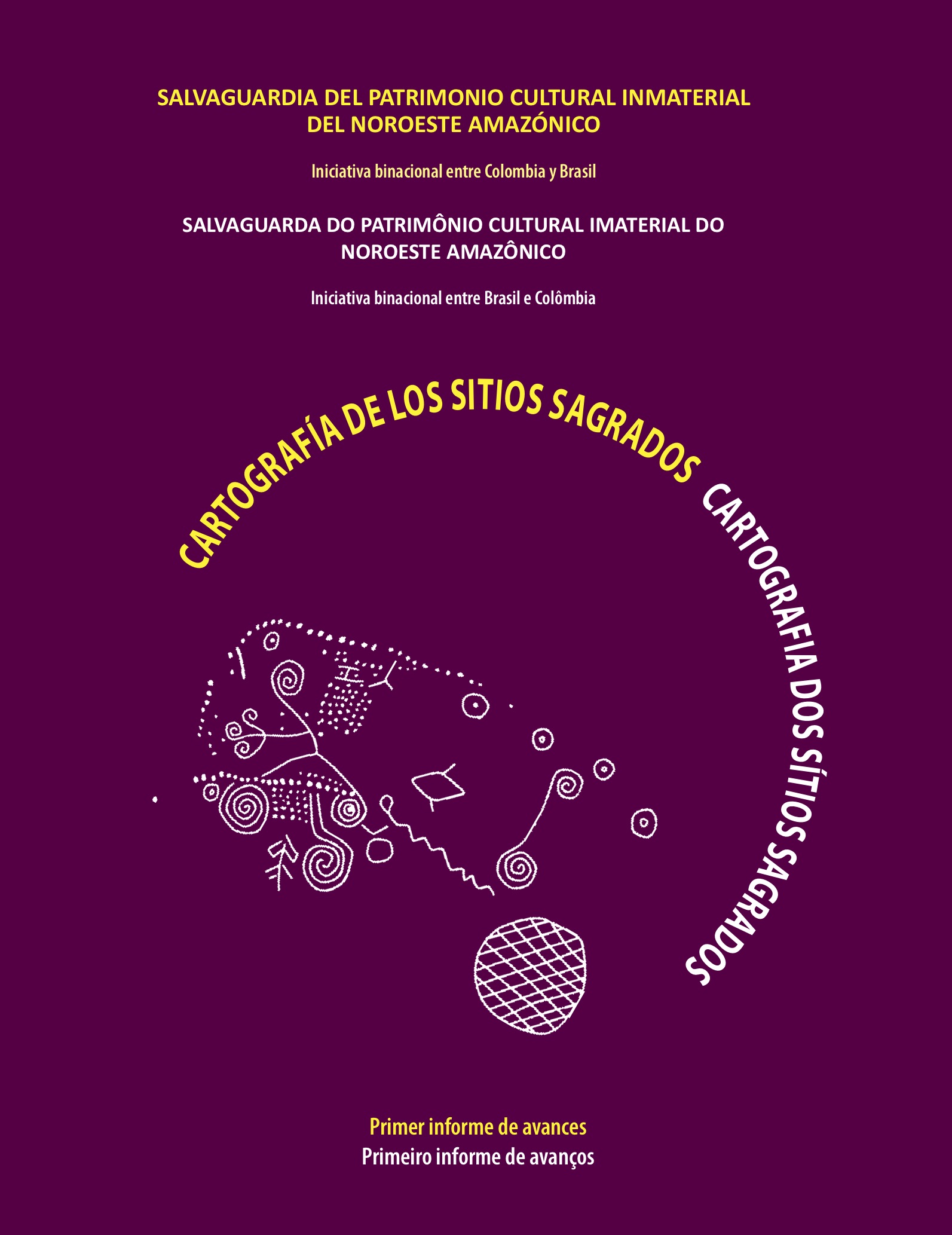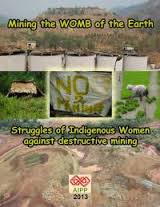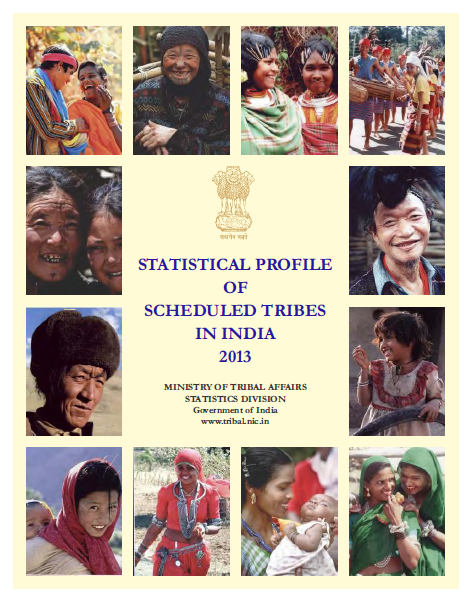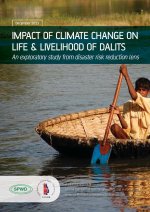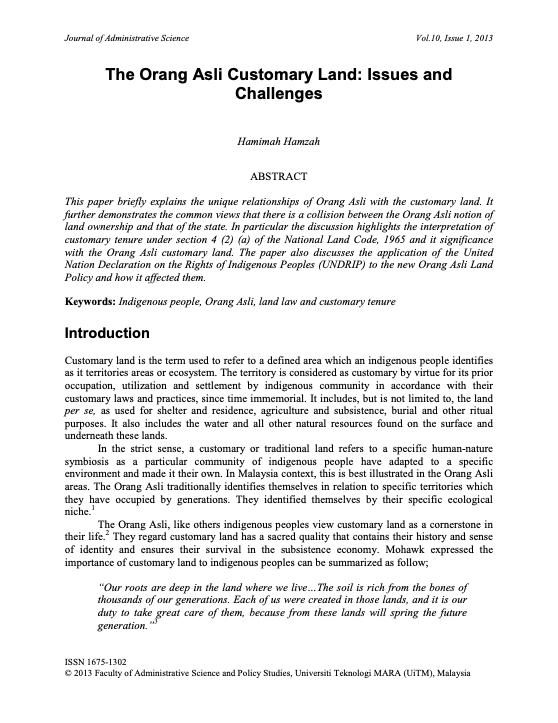Do Current Forest Carbon Standards Include Adequate Requirements to Ensure Indigenous Peoples' Rights in REDD Projects?
SUMMARYAlthough REDD projects can generate benefits for forest communities, they can also create negative social impacts, undermining the rights of indigenous peoples (IP). There is a need to analyze whether current forest carbon standards include adequate requirements to ensure IP's rights in REDD projects. This paper summaries the negative social impacts that REDD projects can cause in forest indigenous communities and establishes an evaluation framework of policies and measures needed to avoid or mitigate those impacts.
Valuing the ‘bundle of land rights’: On formalising indigenous people's (adivasis) land rights in Kerala, India
Indigenous people's struggles in South India for the last four decades have been centred on the general politics of land rights. However, struggles in the recent past have been clearly delineated as striving to not merely gain access to land for cultivation, but also to claim formal individual titles to parcels of land.
Aprovechamiento forestal y mercados de la madera en la Amazonía Ecuatoriana
Hasil Identifikasi Kegiatan terkait dengan Peningkatan Perekonomian Masyarakat di Kabupaten Kapuas Hulu, Kalimantan Barat
Mining the Womb of the Earth: Struggles of Indigenous Women against destructive mining
This publication is part of the Indigenous Peoples Human Rights Defenders Network (IPHRD Net) efforts to inform actors and stakeholders of the efforts of indigenous women and their communities to address violations of their rights, particularly their collective rights as indigenous peoples. The IPHRD Net is supported by the European Instrument for Democracy and Human Rights (EIDHR).
Respeto del consentimiento libre, previo e informado
La reglamentación inapropiada en la adquisición de tierras se ha convertido en un problema grave, sobre todo en África subsahariana y Asia sudoriental, donde amenaza la seguridad alimentaria, los medios de vida locales y la gestión sostenible de los recursos naturales y ha provocado conflictos por la tierra y abusos contra los derechos humanos. Los grupos sociales marginados están particularmente amenazados, especialmente los pueblos indígenas, otros propietarios consuetudinarios, las mujeres, los miembros de castas inferiores y las minorías étnicas.
Tenure of indigenous peoples territories and REDD+ as a forestry management incentive: the case of Mesoamerican countries
Programmes to reduce emissions from deforestation and ecosystem degradation, such as REDD+ and other forestry incentive programmes, including Payment for Environmental Services (PES), could represent an opportunity to strengthen processes of conservation, sustainable usage and poverty reduction in the Mesoamerican region, particularly in indigenous territories and communities.
Certification and equity: Applying an “equity framework” to compare certification schemes across product sectors and scales
This paper applies a comprehensive equity framework to compare the priorities and trade-offs of different environmental and social certification schemes. The schemes selected for comparison are the Forest Stewardship Council (FSC), the Programme for the Endorsement of Forest Certification Schemes (PEFC), the Fairtrade Labelling Organization (FLO), and the Climate, Community and Biodiversity Alliance (CCBA).
Statistical Profile Of Scheduled Tribes In India 2013
The statistical profile is a comprehensive statistical profile of Scheduled Tribes (otherwise called indigenous people), produced and published by Ministry of Tribal Affairs, Government of India. The profile presents information relating to some key characteristics pertaining to STs like trend analysis of demographic profile, education, health, and employment status along with their proportions having basic amenities like, drinking water, electricity, and bank account etc.
Impact of Climate Change on Life & Livelihoods of Dalits
Dalit stakes in environment are high due to their dependence on natural resources for livelihoods. Though climatic uncertainties have implications on many sectors, rural livelihoods are most affected by changes in climatic patterns. Dalits, who are highly dependent on earnings from agricultural labour and, livestock rearing dependent on forests and other common lands have fewer resources and options to combat the damages to the resourcebase because of climate change.
The Orang Asli Customary Land
This paper briefly explains the unique relationships of Orang Asli with the customary land. It further demonstrates the common views that there is a collision between the Orang Asli notion of land ownership and that of the state. In particular the discussion highlights the interpretation of customary tenure under section 4 (2) (a) of the National Land Code, 1965 and it significance with the Orang Asli customary land.

